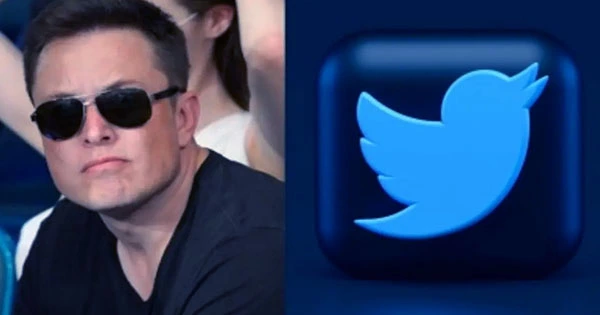Elon Musk, the new owner of Twitter, has highlighted his opinion that “free speech” is crucial to the company’s future success, even stating in a press statement announcing the transaction today that “free expression is the backbone of a functional democracy.” However, there is one major issue with having an unmoderated (or rather weakly regulated) social network that is sponsored by advertisements: the advertisers themselves. They might perhaps depart! If Twitter’s content moderation controls are rolled back, more bullying, violent speech, hate speech, disinformation, and other unpleasant content may find traction.
This may make Twitter less appealing to newbies who were already hesitant to post in a “public square” – an area that contributes to Twitter’s continuing user growth issues. However, it may deter marketers from putting their funds in the site. Twitter has worked hard over the years to make the platform less toxic, with different degrees of success. The app’s hate speech restrictions have been updated to give greater detail about what is and is not permitted. For example, in 2020, it expanded the scope of its ban on degrading statements to encompass age, infirmity, and even sickness.
The latter was a timely addition, as some Twitter users had begun making racist and cruel statements about COVID-19’s spread. It declared last year that it was working to strengthen its content moderation systems by assessing user reports to discover where its present policies could be lacking in terms of user safety. When its regulations helped reduce the quantity of hate speech on its platform, it boasted about it in biannual reports. From January to June 2021, Twitter took action on 4.8 million distinct accounts, including bots, spam, and other bad actors, as well as rule infractions, according to its latest report.
With Musk in control, it’s unclear where these initiatives will go. Instead of swinging in one direction, the pendulum will now swing in the opposite direction, away from tight moderation. That might be detrimental to company. Advertisers are irritated when their brand is associated with hate speech, abusive or harmful content on social media sites. They’ve demonstrated this time and time again through boycotts for this reason. Brands and publishers in Europe, for example, said in 2017 that they would stop advertising on Google’s YouTube after their adverts were discovered to be featured alongside videos supporting terrorism and hatred. Google reacted fast by giving marketers more control over their programmatic purchases.
When major YouTube producers went out of line at other times, Google would take advertisers’ complaints into account. The video platform will demonetize and remove adverts from any creator who received negative feedback for violating its criteria about “advertiser-friendly” material. Larger marketers began to throw their weight around in recent years in an attempt to change Facebook’s content control standards. Brands such as Verizon, Boeing, Microsoft, Reebok, Patagonia, Hershey’s, Eddie Bauer, Adidas, Levi Strauss, Pfizer, HP, Best Buy, Denny’s, Unilever, and others launched an ad boycott of Facebook and Instagram in an effort to convince Facebook (formerly known as Meta) to tighten its hate speech policing.
Increase, yes. Increase, not decrease. “Based on the present division and the election that we are seeing in the United States, there has to be considerably greater enforcement in the area of hate speech,” Unilver said at the time. At the time, the corporation was also shunning Twitter. Over 1,110 firms, including large corporations and small enterprises, have signed on to the boycott. Other companies, such as Coca-Cola, Starbucks, Clorox, and Ford, momentarily halted their social advertising but did not join the boycott.
Consider how these same companies will behave if a “free speech” free-for-all occurs on Twitter. Given its lower size in comparison to Facebook, Instagram, and TikTok, the network is already not a key focus. What if it was a hotbed of controversial and maybe harmful speech? It could be time to go. This is not a trivial issue for Twitter to consider in the future. Although the firm has been experimenting with a variety of new monetizable products, such as Twitter Spaces and subscriptions, advertising is still the company’s primary source of revenue.
Twitter earned $1.57 billion in revenue in the fourth quarter, falling short of projections of $1.58 billion due to a modest slowdown in ad expenditure. According to eMarketer, advertising made for 89 percent of Twitter’s income in 2021, and it is expected to rise to above 91 percent by 2023. Twitter exists because of advertisements. Twitter has bigger plans for developer-led innovations that might lead to new economic models in the future, but it’s unclear which initiatives will make it through Twitter’s new priorities. In other words, as Twitter moves ahead under Musk, marketers may have a lot of power. Advertisers may quit if the firm changes or revamps its moderation procedures, reinstates banned users (though obviously not Trump), or enables hate speech and other harmful and abusive content to return.















